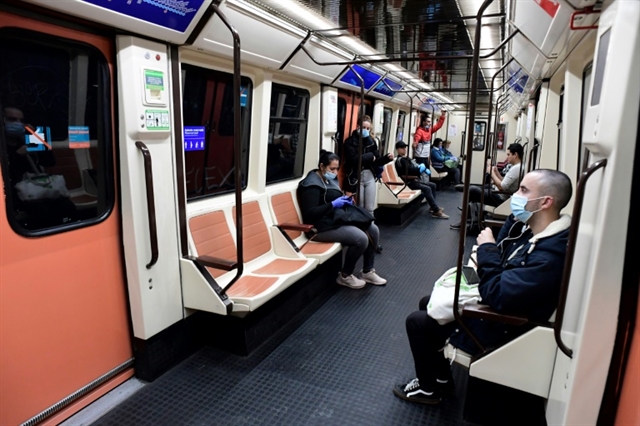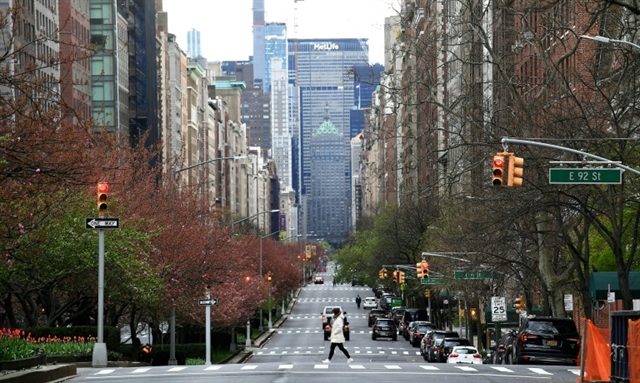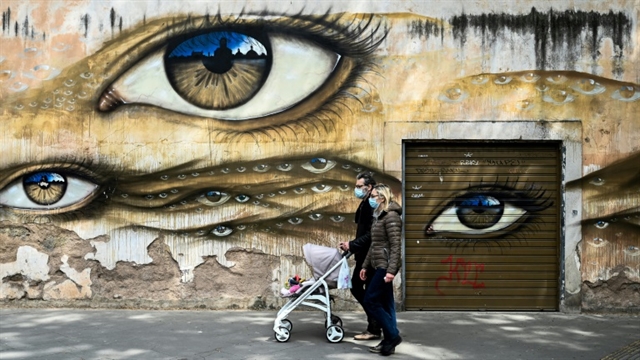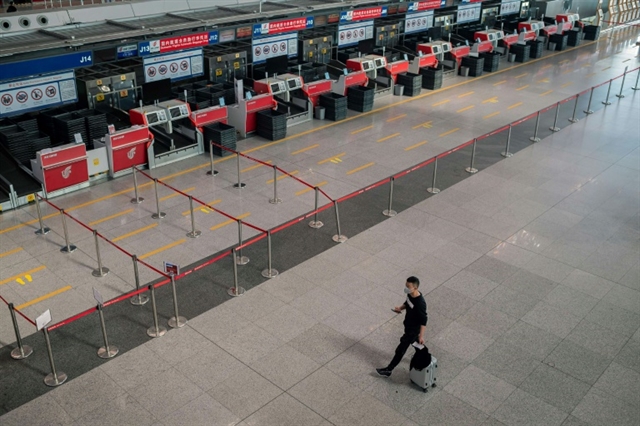 World
World

PARIS — France extended its nationwide lockdown on Monday for another month in a bid to halt the coronavirus pandemic, as other hard-hit countries considered easing their measures with hopes rising that death rates may soon plateau.
More than half of humanity is now under confinement to contain the virus, which has killed at least 119,000 people and infected two million since emerging in China late last year.

|
| Spain eased some lockdown restrictions Monday, allowing construction and factory workers to resume work. — AFP Photo |
Most of the dead are in Europe, but the United States has also been hard hit -- particularly New York state where more than 10,000 have died, close to half of all fatalities in the country.
Governments around the world are under pressure to save their economies from collapse as a result of the mass shutdown of businesses and confinement of people, but officials are also trying to avoid a deadly second wave of the disease.
US President Donald Trump has repeatedly stressed he wants to open the world's largest economy as swiftly as possible, and said on Monday he would announce guidance this week on how to jump-start stalled business.
He controversially declared that as president he, not state governors, has the "ultimate authority" in deciding when to restart the shuttered economy.
He also signalled the US might be past the worst of the outbreaks, even as his experts urged caution.
"It looks like we're plateauing, and maybe even in many cases coming down," Trump told reporters about various US metrics including new cases.

|
| New York deaths topped 10,000 on Monday but the governor said the peak had passed. — AFP Photo |
While New York's governor said the peak had passed on Monday, Spain started to ease lockdown orders and Austria readied to reopen some shops.
France did not follow suit, instead extending a lockdown in place since March 17 until May 11, after which schools and businesses are set to gradually reopen.
President Emmanuel Macron said the epidemic was "beginning to steady... (and) hope is returning," speaking in a televised address to the nation.
"May 11 will be the start of a new phase. It will be progressive and the rules can be adapted according to our results," he added.
France reported a slight increase in hospital deaths Monday -- though still below its record numbers of last week -- and a slight dip in intensive care patients for a fifth day running.

|
| Italy will reopen some bookshops and laundries on a trial basis on Tuesday, although it last week officially extended its national lockdown until May 3. — AFP Photo |
The World Health Organisation said lifting curbs too soon could unleash a second wave of cases and warned that only a vaccine would fully halt the spread of COVID-19.
'Path to normalcy'
But in some hotspots, there were slivers of hope that regular life may soon resume.
New York Governor Andrew Cuomo declared that the "worst is over" in the state, saying he was working on a plan to gradually reopen the economy.
"I believe we can now start on the path to normalcy," he said. The impact on New York has been brutal, with unclaimed victims buried in unmarked mass graves and makeshift morgues set up for the dead.
Like Trump's administration, European governments were also keen to get their economies moving again.
In Spain, where more than 17,000 have died, construction and factory workers were allowed back on the job on Monday and police handed out face masks at train stations to commuters.
"It's amazing that the government is doing this because either you can't find them in shops or they're very expensive," said nurse Brenda Palacios, who took two masks.
Austria said it would reopen small shops and hardware and gardening stores on Tuesday following a one-month lockdown, with coronavirus infections stabilising.
And Italy will reopen some bookshops and laundries on a trial basis on Tuesday, although it has officially extended its national lockdown until May 3.
Italy is the second worst-hit country after the United States and its death toll topped 20,000 Monday. But the number of critically ill patients dropped for the 10th successive day.
Meanwhile, German scientists recommended a gradual lifting of restrictions later this week with the rate of new infections falling and a death toll that remains far below other major European nations.
WHO vaccine warning
But the World Health Organisation warned that even the most careful easing of lockdowns was no substitute for a vaccine -- a process that is likely to take at least a year.
"Ultimately, the development and delivery of a safe and effective vaccine will be needed to fully interrupt transmission," WHO chief Tedros Adhanom Ghebreyesus told a virtual briefing from Geneva.
He added that coronavirus was 10 times deadlier than the 2009-10 swine flu outbreak.
Similar warnings will weigh heavily on decisions being made in other countries.
In Britain, Foreign Secretary Dominic Raab warned its three-week lockdown would not be lifted this week as the virus has not yet peaked.
Raab is standing in for Prime Minister Boris Johnson, who was released from hospital Sunday after being treated for coronavirus, thanking doctors who he said saved his life.
Britain recorded 717 deaths on Monday, a slight drop from the day before, taking the toll to over 11,000.

|
| China reported a spike in new infections, most of them imported cases. — AFP Photo |
China infections rise
In China, officials reported 108 new symptomatic cases on Monday, the highest number of confirmed infections in a single day in over a month.
Imported cases accounted for most of the total, officials said. Russia reported its highest daily rise in cases so far, as the capital
Moscow began to issue digital travel permits. And in India, key industries warned of social unrest unless Prime Minister Narendra Modi makes concessions when he announces any extension on Tuesday to a three-week lockdown of the country's 1.3 billion people. — AFP




